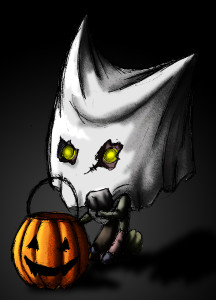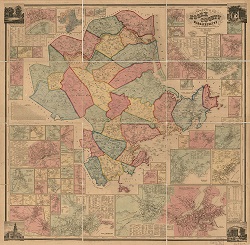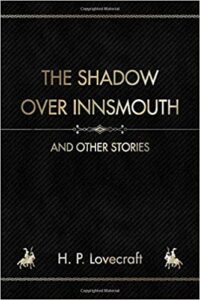A note from the editor:
We are now more than midway through October and Monster Librarian still needs to raise the funds to pay for our hosting fees and postage in 2021. If you like what we’re doing, please take a moment to click on that red “Contribute” button in the sidebar to the right, to help us keep going! Even five dollars will get us closer to the $195 we need to keep going at the most basic level. We have never accepted paid advertising so you can be guaranteed that our reviews are objective. We’ve been reviewing and supporting the horror community for 15 years now, help us make it another year! Or, you can purchase titles mentioned in this post through our store at Bookshop.org. Thank you!

For a list of the books mentioned in this post, check out the Monster Librarian store on Bookshop.org!
************************
October is the big month for the horror genre, and in hopes of getting up a review every day, I do a lot of reading in hopes that I can do exactly that. The pandemic has killed my ability to focus, though, and especially if I’m reading something long, it seems to take longer to read about it, think about it, and write about it. That’s especially true if I’m reading similar kinds of books– after awhile I just have to stop.
This has been especially aggravated by my library closing down and my kids’ schools going virtual so that I don’t get time in those libraries either. Libraries are my haven and not physically getting to be in that space is so difficult for me! I know I’m not the only person who is dealing with this right now. A dear friend of mine who typically gobbles up anything horror-related has stacks and stacks of books that he just keeps buying but is unable to focus enough to finish anything. So what can you do?
First, it’s okay to put a book down if you just can’t handle it. I like ebooks for really long books because holding those in my hands gets me thinking on how much there is to read, which sometimes can be intimidating. Is your fiction too close to your current reality? This month was not the month I needed to start watching The Man in the High Castle. I also read Leigh Bardugo’s Ninth House, not realizing how intense it was going to be. Reading Goodreads reviews after the fact, I found that readers were providing content warnings to potential future readers. If a book is stressing you out instead of entertaining you, you don’t need to keep going.
Second, mix it up! Short stories are great, and I love them, but if you’re reading several anthologies in a row from cover to cover, it’s no longer a vacation. I just finished the excellent SLAY: Stories of the Vampire Noire, edited by Nicole Givens Kurtz, so I’ll be switching to something different before I start another one. There are plenty of authors who don’t get the kind of attention they should, classic authors you might not have read, and new books coming out all the time. Reading T. Kingfisher’s new book The Hollow Places led me to track down The Willows by Algernon Blackwood. In addition to the HWA’s newly published series of genre classics, if you are short on funds, many classics are available free as ebooks through Project Gutenberg.
There’s some really good horror-related nonfiction out there, such as Lisa Morton’s recently released Calling The Spirits. Although these can seem long, nonfiction is great because you can read a chapter and put it down for awhile until you’re ready to come back to it. Kit Powers’ My Life in Horror, Volume 1 is a series of standalone personal essays on growing up as a horror fan, easy to pick up and put down until you’re ready for more. You might also consider checking out some poetry. Even if you’re convinced it’s not your thing, Alessandro Manzetti’s Whitechapel Rhapsody might change your mind, although it’s not for the faint of stomach.
This is also a great time to check out some of the titles that tie into current television and movies. The HBO series Lovecraft County is based on a book of the same name by Matt Ruff, a great book of interconnected stories. Netflix’s The Haunting of Bly Manor riffs on the ghost stories of Henry James, notably The Turn of the Screw.
You don’t have to seek out anything new, though. I’ve reread some old favorites when I needed a break. Looking for something lighter? Maskerade by Terry Pratchett isn’t horror, but it is an entertaining riff on a story that definitely is, The Phantom of the Opera. Seanan McGuire’s InCryptid series, starting with Discount Armageddon, takes a lighter approach to slayers, monsters, and ghosts than is typical for horror, but it is a lot of fun. Sometimes a thriller is what you need, as long as it’s not too close to life for you. Alyssa Cole, mostly known for her excellent romance novels, has an #OwnVoices thriller out right now on gentrification spiraling out of control titled When No One Is Watching, and David Simms has a supernatural thriller, Fear the Reaper, that reveals the dark history of American eugenics.
Despite protestations that they aren’t “real reading”, graphic novels definitely are, and if too many words on the page is a struggle right now, you might try them. Marjorie Liu’s Monstress has even won awards, Or try a novella. A recent entry into the novella category that I raced through was Stephen Graham Jones’ Night of the Mannequins. There are a lot of great titles in the middle grade and YA fiction categories as well. No, you are not too old for good middle-grade fiction. If you haven’t read Neil Gaiman’s The Graveyard Book in either its novel or graphic novel formats it is well past time.
If you are a doer or a maker, I don’t personally have the patience for audiobooks or most podcasts, but if you spend a lot of time driving or run long distance, that’s another opportunity. And it’s the perfect time of year to explore Halloween cookbooks and crafts! My son collected and loved these even before he could read them, and a lot of gruesome-looking foods are pretty easy to make. We’ve worn out Ghoulish Goodies! There is even an unofficial Walking Dead cookbook called The Snacking Dead.
Third, go outside. It’s a little cool where I am to go outside and sit and read right now, but I went for a long walk yesterday that really cleared my head and got me focused again. All the sitting inside, social media, news, attempting to get along with your family you’ve been stuck inside with for seven months leaves you feeling tired and your brain cloudy. Reading is supposed to be relaxing, but apparently you need to really relax before you can enjoy it.
Clear out your brain, clear space for yourself inside and out, turn off your television, and give yourself permission. It’s the Halloween time of year, so, whatever makes you feel the season, give yourself a treat.
 If you’re visiting Salem already, you can take your haunted travels further; it is a county seat for Essex County, Massachusetts, frequently referred to as “Lovecraft country” (not to be mistaken with the novel by Matt Ruff or the HBO show). While not all of his tales were set here, many of horror master H.P. Lovecraft’s stories are set in the area, and while the locations and geography have been fictionalized and altered, Marblehead, Salem, Gloucester, and Newburyport in particular have been suggested as inspirations for the towns of Kingsport, Arkham (home of Miskatonic University), Innsmouth, and Dunwich (although not necessarily in that order). In an article for The Toast, Rebecca Turkewitz writes:
If you’re visiting Salem already, you can take your haunted travels further; it is a county seat for Essex County, Massachusetts, frequently referred to as “Lovecraft country” (not to be mistaken with the novel by Matt Ruff or the HBO show). While not all of his tales were set here, many of horror master H.P. Lovecraft’s stories are set in the area, and while the locations and geography have been fictionalized and altered, Marblehead, Salem, Gloucester, and Newburyport in particular have been suggested as inspirations for the towns of Kingsport, Arkham (home of Miskatonic University), Innsmouth, and Dunwich (although not necessarily in that order). In an article for The Toast, Rebecca Turkewitz writes: Arkham in different places in his stories. Luckily, there are fans of Lovecraft who have done the work of mapping out the inspirations and possible locations of his tales. Donovan Loucks of the H.P. Lovecraft Archive has researched Massachusetts sites tied into Lovecraft’s stories: while his short tour of Lovecraftian Massachusetts sites includes Boston and Cambridge, most are in Essex County.
Arkham in different places in his stories. Luckily, there are fans of Lovecraft who have done the work of mapping out the inspirations and possible locations of his tales. Donovan Loucks of the H.P. Lovecraft Archive has researched Massachusetts sites tied into Lovecraft’s stories: while his short tour of Lovecraftian Massachusetts sites includes Boston and Cambridge, most are in Essex County.





Follow Us!